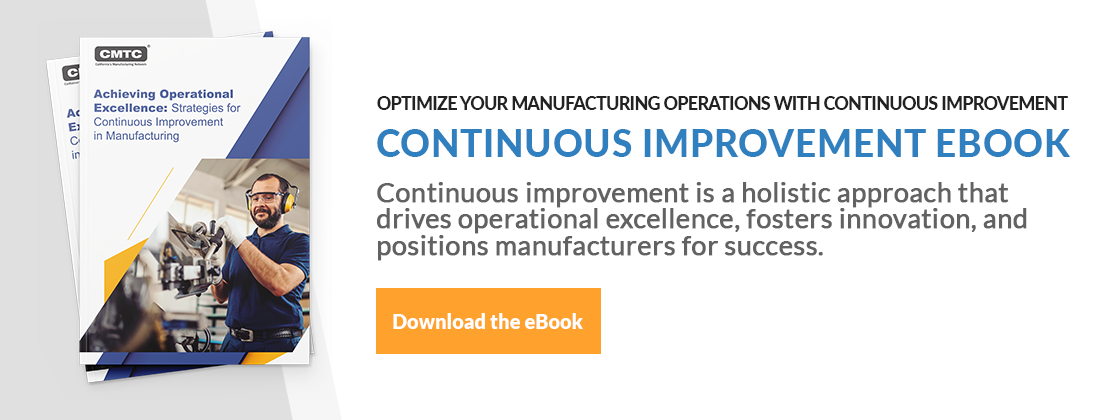September 15, 2021 | Continuous Improvement, Quality
Quality Foundations Every Manufacturer Should Know
Whether you’re a seasoned manufacturer or looking to start your own organization, there are certain quality foundations that you should know. Such foundations are essential for the internal and external success of your operations and include employee engagement as well as product quality control and delighting your customers.
Quick Links:
Quality in High-Performing Organizations
High-performing manufacturing organizations tend to have a few key qualities in common, which greatly contribute to their enduring success. These include:
- Planning-oriented, both strategic and tactical
- Committed top management involvement
- Customer satisfaction is a primary goal
- Employee training for evolving competence
A Commitment to Customers
If an organization is to grow, it should develop a reputation for delighting its customers and exceeding their expectations on a consistent basis. The way a manufacturing company is organized and how it communicates is driven by this commitment to meet or exceed its customer's expectations. Ensuring the whole organization is driven by this goal involves a couple of critical components, such as:
- Continual Appraisal Of Product Quality: This means evaluating product performance, maintaining consistent quality, ensuring conformance, meeting regulations, and delivering on the appropriate aesthetics of the product.
- Ongoing Concern Over Their Service: Delivery timeliness, order completeness, and accuracy, and general responsiveness regarding the delivery of the order are qualities important to the customer experience.
Give Weight to Human Resources
Human resources management in a manufacturing organization is considered from three perspectives:
- Job Analysis and Design
- Training and Development
- Employee Motivation & Morale
These three factors consider and address many roles your employees take on in your operations, from creating and outlining the responsibilities of a certain job to providing training opportunities to your employees, then maintaining employee engagement and boosting overall morale. Employee engagement is especially important as it increases productivity in the workplace. Overall, companies with high employee engagement are 21% more profitable.

Measure Business Results
Manufacturing businesses should perform audits to prove that what is being said is actually being done. Audits can be conducted either formally via a third party or informally via an internal audit. Performing audits ensures accountability and helps patch up any holes or tie up loose ends along the manufacturing process that might need extra attention to keep daily operations as streamlined and optimized as possible.
Part of this is knowing and managing the cost of quality in a manufacturing organization. There are good costs and bad costs in terms of quality, but both balance each other out in the overall cost of quality.
1. Good Cost: Prevention
- Quality planning and organizing
- Process analysis and improvement
- Employee training and people development
- Design, development, and integration of quality
- Product design verifications
2. Good Cost: Appraisal
- Test and inspection of purchased materials
- Test and inspection equipment
- In-process inspection and testing
- Laboratory testing for product acceptance
- Checking quality by the direct labor workers
3. Bad Cost: Internal Failures
- Scrap costs (labor and material costs)
- Production rework (labor and material costs)
- Engineering rework and redesign
- Additional material and procurement costs
- Production downtime and schedule changes
4. Bad Cost: External Failures
- Warranty costs (in-warranty)
- Customer complaints (out of warranty)
- Service cost to correct (labor and material)
- Loss of add-on sales and profit
- Damage to reputation (long-term)
Qualities for Manufacturing Agility
Let’s dig deeper into the various characteristics it takes to create an environment of quality in your manufacturing organization from start to finish.
Empowering the Staff
Your manufacturing organization’s management should consider and evaluate the effectiveness of their leadership in the organization. For example, are they promoting the people that will build a culture of creating more leaders? Are they willing to give up some of their power and authority and empower others to make decisions? Good leaders include others in making decisions, especially those who will be impacted by their decisions.
This is also important for succession planning, also known as a strategy for passing on leadership roles to an employee or groups of employees gradually over time. It ensures that the manufacturing business continues to run smoothly over the course of time so that the operations don’t become so critically attached to the presence of one specific person.
It’s a process that involves cross-training employees so that they develop leadership capabilities, multidimensional skills, company knowledge, and a holistic understanding of the organization. Essentially, it’s about preparing the next generation of leaders in order to thrive in the future. The succession planning process can take anywhere from two to several years to effectively complete.
Understanding The Customer
Does your organization consider how well you understand the customers' needs? Do you regularly evaluate customer feedback? Does your manufacturing company make a positive impact in the community?
Whether you’re a B2B or B2C manufacturer, your customers are the lifeblood of your business. While many small and medium-sized manufacturers often look inward for ways to improve business and processes – such as adopting new technology or improving employee training – it’s also important to venture outside your own doors and listen to your customers.
Listening to your customers doesn’t just mean picking up the phone when they call or making eye contact when meeting with them. Good listening goes further than that and involves understanding each of the following:
- Their day-to-day situation. How can you learn more about your customer in order to better meet their needs?
- The challenges they face. What are their pain points, and how can you help?
- Their goals. What can you do to help them achieve them, and how can you eliminate obstacles that stand in their way?
- How and why they use your product. What can you do to improve your products or processes to make them even more valuable?

Focus On Manufacturing Processes
Process management at your manufacturing organization should be required with goals and monthly reports of KPI's. The concept of Process Owners should be used throughout the company, wherein one point-of-contact is responsible for coordinating and reporting on each process. This further affirms employee engagement by placing employees in positions of authority over their respective processes to ensure quality.
Process Improvement
"Kaizen" in Japanese translates to "good change," and it is often used to describe process improvements. People inherently resist change, and that resistance must be overcome for the organization to improve. The best way to overcome resistance is by building a culture where participation in the change process is the normal practice, usually produced by continual improvement processes.
To be effective, processes must be analyzed and understood, changes cautiously implemented, and results compared against a requirement. This includes:
- Equipment
- Work instructions
- Trained employees
- Customer requirements
- Measure the cycle time and waste
Imagine a workplace where productivity was constantly optimized, innovation was always pursued, and new opportunities were frequently discovered! This method of constant betterment – known as the continuous improvement approach – empowers manufacturers to operate on a higher level. With the right culture, systems, and mentality, improvement becomes part of everyday work and can provide incremental value to businesses seeking a new route of competitiveness and achieving operational excellence.
CMTC Is Here to Help
CMTC’s team of consultants is made up of diverse backgrounds and skill sets to provide the knowledge necessary to overcome almost any issue faced by California’s manufacturing community. CMTC specializes in technical assistance, workforce development, and consulting services for small and medium-sized manufacturers (SMMs) across California to help SMMs increase their productivity and global competitiveness. We can “expand your reach” by helping you implement industry best practices in your factory.
For more information about CMTC, visit our website at www.cmtc.com or contact us at 310-263- 3060.
About the Author
Eliot Dratch
Eliot Dratch is a quality, lean and safety consultant who understands that U.S. manufacturing has been the economic engine that raised the living standards and built economic empowerment for the last 6 generations of Americans. Eliot’s work with manufacturers for his entire 30+ year career from different manufacturing sectors allows him to leverage a unique blend of experience for his clients. His goal is always to measurably improve a CMTC client’s productivity, safety and profitability.

